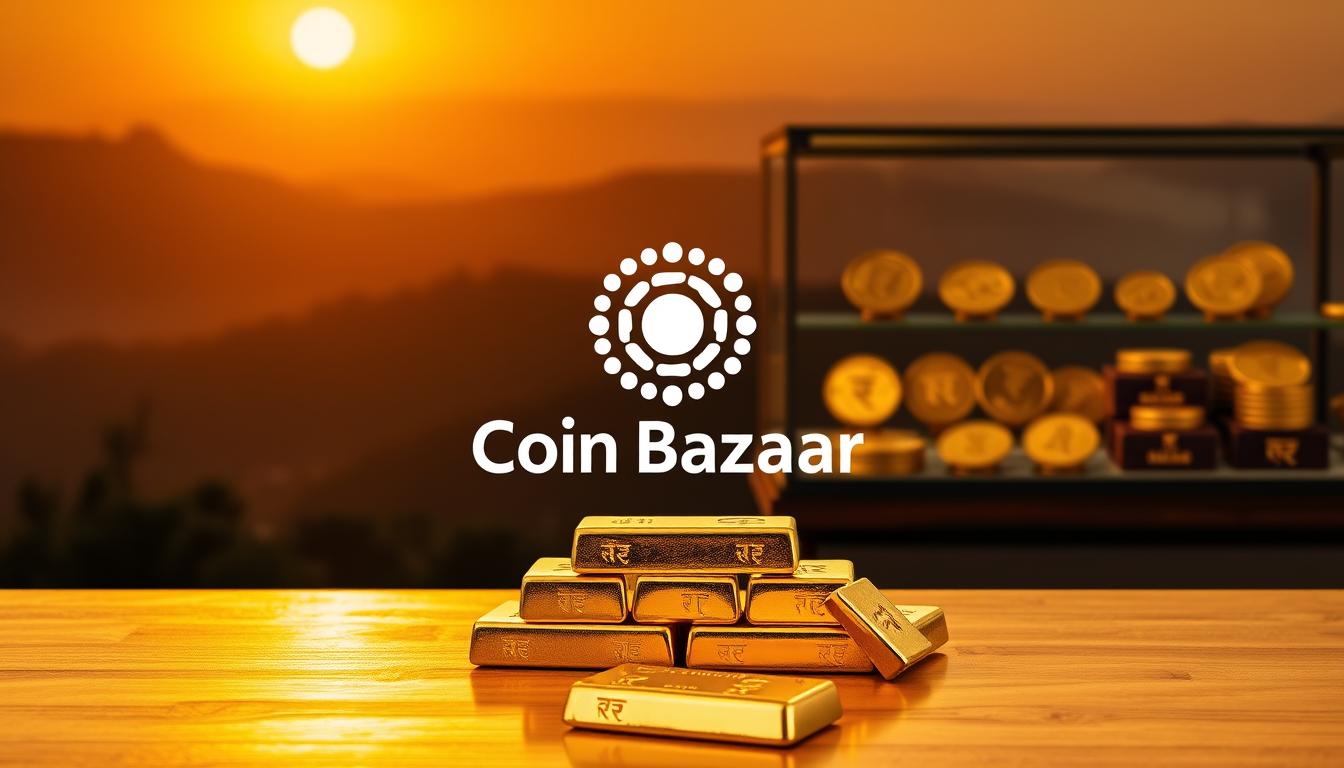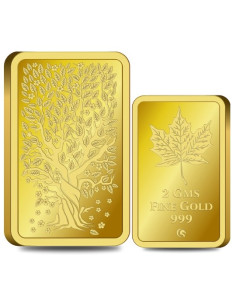Exclusive Deals & Trending Items


Muthoot Pappachan Swarnavarsham Gold BIS Hallmarked Ganesh Pendant of 1 gms in 22 KT 916 Purity Fineness
Shop NowAre you thinking about investing in gold now? Gold has long been a safe haven during tough economic times. Its value has appreciated substantially over the last five years.
The recent 100% rise in gold prices has caught the world’s attention. This includes investors in India. When looking at your investment options, it’s key to understand what’s driving this growth. This will help you decide if it’s the best time to invest in gold.
Key Takeaways
- Gold’s value has risen by 100% over the past five years.
- The commodity remains a popular safe-haven asset.
- Economic turbulence is a key driver of gold’s appeal.
- Investors in India are showing increased interest in gold.
- Analyzing market trends is crucial before making an investment decision.
The Golden Century: Understanding Gold as an Investment Asset
Gold has a long history and is still important in global finance. You might wonder why gold is a good investment. Let’s explore its role in finance.
Gold’s Historical Role in Global Finance
Gold has been key in finance for centuries. It’s been used for trading, saving, and showing wealth. Its importance is clear in backing currencies and stabilizing economies.
The gold standard, linking currency to gold, was used until the mid-20th century. This shows gold’s big role in finance.
The table below highlights key milestones in gold’s historical role:
| Period | Gold’s Role | Significance |
|---|---|---|
| Ancient Times | Medium of Exchange | Facilitated trade |
| 19th-20th Century | Gold Standard | Stabilized currencies |
| Modern Era | Safe-Haven Asset | Investment during uncertainty |
Why Investors Turn to Gold During Uncertainty
Investors choose gold in uncertain times because it’s seen as safe. Gold’s value often goes up when other investments fall. This is because gold doesn’t move with other assets, making it a great addition to portfolios.


When markets are shaky, people want to protect their wealth. Gold has done well in these times. It’s a top pick for reducing risk. By knowing about gold trends and adding it to your strategy, you can make your portfolio stronger.
Gold’s Remarkable 100% Price Surge: A Five-Year Analysis
Gold’s price has skyrocketed by 100% in the last five years, catching the eye of investors everywhere. This big jump has made gold a hot topic for investment. People are now curious about what the future holds for gold.
Key Milestones in Gold’s Price Journey Since 2018
Gold’s price has seen many important moments since 2018. It started around $1,200 per ounce. By 2020, it had jumped over $2,000 per ounce, thanks to global economic worries.
Major events like the COVID-19 pandemic and geopolitical tensions were key factors in this rise.
Some key moments include:
- A big price jump in 2020 due to the pandemic.
- It kept growing in 2021 and 2022, thanks to economic recovery and inflation worries.
- In 2023, prices leveled off a bit, influenced by interest rate changes and currency shifts.


Comparing Gold’s Performance to Other Asset Classes
It’s important to look at gold’s performance against other assets like stocks, real estate, and bonds.
Gold vs. Equity Markets
Gold is often seen as a safe-haven asset when stock markets are shaky. Over the last five years, while stocks went up and down, gold stayed steady. For example, in 2020, when markets fell, gold prices went up as people looked for safer places to put their money.
Gold vs. Real Estate and Fixed Income
Gold has given good returns with less risk compared to real estate and bonds. Unlike real estate, which can be affected by local markets and liquidity, gold is easy to buy and sell worldwide. Also, in times of low interest rates, gold has beaten bonds in returns.
Here are some key comparisons:
- Gold vs. S&P 500: Gold has been strong when markets are down.
- Gold vs. Real Estate: Gold’s ease of sale and global appeal make it better.
- Gold vs. Bonds: Gold has done well when interest rates are low.
Gold Investment Timing: The Science and Art of When to Buy
Deciding when to buy gold is complex. It’s influenced by cycles and seasonal factors. Knowing these can improve your investment plan.
Cyclical Patterns in Gold Prices
Gold prices follow certain patterns over time. These patterns are shaped by global economic trends and how investors act. Analyzing these cycles helps find the best times to invest.
The business cycle is a big factor. It affects gold prices as the economy grows or shrinks. When the economy is down, gold demand goes up because it’s seen as a safe place to put money.
| Economic Phase | Gold Price Trend | Investor Behavior |
|---|---|---|
| Economic Expansion | Stable or Slightly Increasing | Less demand for safe-haven assets |
| Economic Downturn | Increasing | Higher demand for gold as a safe-haven |
Seasonal Factors Affecting Gold Investment Timing
Seasonal factors also impact gold prices, especially in places like India. Gold demand changes a lot throughout the year there.
Festival Season Impact on Gold Prices in India
In India, festivals like Diwali and Akshaya Tritiya increase gold demand. Investors and consumers alike buy more gold during these times. This is due to cultural and traditional reasons.
Knowing these seasonal trends can help you invest in gold better. It might lower costs and increase returns.
Economic Indicators That Signal the Best Time to Invest in Gold
Tracking certain economic indicators can show you the best time to buy gold. These signs not only show the economy’s current state but also hint at future trends. These trends can impact gold prices.
Inflation Rates and Gold Price Correlation
Inflation is a key economic sign that affects gold prices. Gold is seen as a shield against inflation because its value goes up when inflation does. This is because gold’s worth isn’t linked to any currency, making it a good choice when currencies lose value.
To see how inflation and gold prices are linked, let’s look at some data:
| Year | Inflation Rate (%) | Gold Price (USD/oz) |
|---|---|---|
| 2020 | 2.3 | 1,800 |
| 2021 | 5.4 | 1,900 |
| 2022 | 6.5 | 2,000 |
The table shows a clear link between inflation and gold prices. When inflation goes up, so does gold’s price.
Interest Rates and Their Impact on Gold Investments
Interest rates are also key in deciding when to invest in gold. Low interest rates make gold more appealing since it doesn’t earn interest. But, high rates make gold less attractive compared to investments that do earn interest.
The link between interest rates and gold prices is complex. It’s influenced by many things, like monetary policy and market hopes. Knowing this can help you make smarter choices about gold investments.
By watching these economic signs, you can guess the best time to invest in gold. This can lead to better investment choices.
Geopolitical Factors Influencing Gold Market Trends
It’s important to know how geopolitical events affect gold prices. Events like global conflicts and trade wars can change gold market trends. They often make investors choose gold as a safe asset.
How Global Conflicts Affect Gold Prices
Global conflicts make financial markets uncertain. This uncertainty leads investors to gold, a safe-haven asset. As a result, gold prices can rise.
For example, when tensions are high, gold prices often go up. This is because gold is seen as safe and stable.
Trade Wars and International Relations’ Impact on Gold
Trade wars and bad international relations can also affect gold prices. These events cause currency changes and economic instability. Gold becomes more appealing as a safe investment.
When trade tensions grow, investors often choose gold. This choice can change gold market trends.
When thinking about investing in gold, consider these global factors. Knowing how events impact gold prices helps you make better investment choices.
The Indian Perspective: Gold Investment in the Cultural Context
In India, gold is more than just a metal. It’s a big part of the culture. Gold has been important for centuries, affecting many parts of life, like weddings and festivals.
Gold’s importance in India comes from its deep cultural roots. It stands for wealth, good luck, and heritage. It’s not just about money; it’s about prosperity and tradition.
Gold’s Significance in Indian Households and Traditions
Gold is highly valued in Indian homes, often kept as family treasures. It’s key in traditions, like weddings, where it shows love and commitment. During festivals like Diwali, people buy gold to attract luck and wealth.
Gold’s role in ceremonies and rituals is clear. Gold coins are given as gifts, wishing good fortune. It’s also seen in traditional jewelry, which is both beautiful and an investment.
How Indian Gold Demand Affects Global Prices
India is a big gold consumer, affecting global prices. Its demand comes from cultural and economic reasons. People want gold as a safe investment and to follow traditions.
Indian demand can really change global gold prices. During festivals, gold demand spikes, raising prices worldwide. This trend is watched closely by investors and analysts.
Regional Gold Buying Patterns Across India
Gold buying habits differ across India, influenced by local customs and economy. In the south, gold jewelry and coins are popular during festivals.
| Region | Preferred Form of Gold | Peak Buying Season |
|---|---|---|
| South India | Jewelry and Coins | Akshaya Tritiya |
| North India | Bars and Coins | Diwali |
| East India | Jewelry | Durga Puja |
Physical Gold vs. Paper Gold: Investment Options for Different Timing Strategies
The world of gold investment offers both physical and paper options. You can choose tangible assets like gold coins, bars, and jewelry. Or, you can go for modern options like Gold ETFs, Sovereign Gold Bonds, and digital gold platforms.
Gold Coins, Bars, and Jewelry as Investment Vehicles
Physical gold is a traditional choice for many. Gold coins and bars are popular for their purity and easy storage. It’s important to think about purity, authenticity, and storage costs when investing in physical gold.
Gold jewelry is also an option, but it’s more expensive due to making charges. This can impact its value as an investment.
Here’s a comparison of different physical gold investment options:
| Investment Type | Purity | Storage Ease th> | Liquidity |
|---|---|---|---|
| Gold Coins | High (24K) | Easy | High |
| Gold Bars | High (24K) | Easy | High |
| Gold Jewelry | Varies (18K, 22K) | Difficult | Low |
Gold ETFs, Sovereign Gold Bonds, and Digital Gold Platforms in India
Paper gold offers a modern and convenient way to invest in gold. Gold ETFs let you invest in gold without physical storage. Sovereign Gold Bonds (SGBs) offer a fixed return plus gold price appreciation. Digital gold platforms allow for flexible investment amounts and easy liquidation.
- Gold ETFs: Easy to trade, no storage hassle
- Sovereign Gold Bonds: Offers additional fixed returns
- Digital Gold: Flexible investment amounts, easy liquidity
When deciding between physical and paper gold, think about your goals, time frame, and convenience. Both have benefits and can diversify your investment portfolio.
Technical Analysis for Gold Price Prediction
To make smart gold investment choices, you need to grasp technical analysis. It’s a way to study market trends by looking at price movements and other data. Gold investors use this to predict future prices by studying past data and patterns.
Chart Patterns and Indicators for Gold Traders
Gold traders rely on chart patterns and technical indicators. Patterns like head and shoulders and double tops can show when prices might change. Indicators like Moving Averages and Relative Strength Index (RSI) help spot trends and potential price shifts.
A golden cross, where the 50-day Moving Average goes above the 200-day, often means a price increase is coming. A death cross, where the 50-day goes below the 200-day, suggests a price drop. Knowing these signals can guide your investment choices.
Support and Resistance Levels in Current Gold Markets
Support and resistance levels are key in technical analysis. Support levels are where gold has bounced back, showing strong demand. Resistance levels are where gold has struggled to rise, indicating enough supply to stop it.
Knowing these levels helps predict gold price movements. For example, near a strong resistance level, it might be wise to sell. Near a support level, it could be a good time to buy.
| Indicator | Description | Signal |
|---|---|---|
| Moving Average | Average price over a specified period | Bullish/Bearish Trend |
| RSI | Measures price movement speed and change | Overbought/Oversold |
| Bollinger Bands | Volatility measure using standard deviations | Breakout/Breakdown |
Expert Gold Price, Forecast for the Coming Years
Looking ahead, knowing about gold price forecasts is key. The gold market is very volatile. To predict its moves, you need to understand many economic and geopolitical factors.
Analyst Predictions and Market Consensus
Analysts use many tools to guess gold price changes. They look at past prices, economic signs like inflation, and world events. Many think gold will stay valuable because it’s seen as a safe place to invest.
Key factors influencing analyst predictions include:
- Economic indicators like inflation and interest rates
- Geopolitical tensions and global conflicts
- Central bank policies and gold reserves
Potential Scenarios for Gold Performance Through 2025
By 2025, gold’s future is uncertain. Optimistic forecasts say gold might hit new highs if the world economy stays shaky. Or if big gold buyers like India want more.
Pessimistic forecasts warn that if the economy gets better and interest rates go up, gold might lose its appeal. This could make its price drop.
To make smart investment choices, it’s important to look at these expert predictions. And keep up with market trends.
Common Mistakes in Timing the Gold Market
Timing the gold market is tricky and can lead to costly mistakes. Both seasoned and novice investors can fall into common pitfalls. These mistakes can affect their investment decisions.
Emotional Decision-Making in Gold Investments
Emotional decision-making is a big challenge in gold investments. Fear and greed often lead to impulsive decisions. For example, buying gold at peak prices or selling during downturns. It’s important to have a solid investment strategy to stay calm during market changes.
Overlooking Carrying Costs and Tax Implications for Indian Investors
Indian investors need to think about the costs of holding physical gold. This includes storage and insurance. Also, understanding the tax on gold investments is key. For example, capital gains tax applies, and the rate changes based on how long you hold it.
Knowing these common mistakes can help you avoid them. Staying informed and disciplined can lead to better investment choices.
Developing Your Personal Gold Investment Strategy
Knowing your investment goals is key to a good gold investment plan. It’s important to make your strategy fit your needs and financial goals. This makes investing in gold easier and more effective.
Determining Your Investment Goals and Time Horizon
First, you need to know why you’re investing in gold. Are you trying to keep your wealth safe, make money, or spread out your investments? Your goals will shape your strategy. Also, think about how long you plan to invest. Is it for a short or long time? This will help you figure out how much gold to include in your portfolio.
Key considerations:
- Financial goals: What are you trying to achieve through your investments?
- Risk tolerance: How much risk are you willing to take on?
- Time horizon: Are you investing for the short term or long term?
Portfolio Allocation: How Much Gold Is Right for You?
Finding the right amount of gold in your portfolio is important. There’s no single answer, but a common rule is 5% to 15% of your portfolio. But, this can change based on your situation and the market.
When choosing your gold amount, think about these things:
- Your overall investment portfolio composition
- Your risk tolerance and financial goals
- Market conditions and economic outlook
Balancing Gold with Other Investments in the Indian Context
In India, mixing gold with other investments is key. Gold is a favorite investment because of its cultural value. But, it’s important to diversify. Mix gold with other assets like stocks, bonds, and real estate for a balanced portfolio.
For example, you might put 10% of your portfolio in gold, 40% in stocks, 30% in bonds, and 20% in real estate. This mix can reduce risks and increase potential gains.
When to Buy Gold: Practical Guidelines for Indian Investors
As an Indian investor, you might wonder when to invest in gold. The timing of your investment can greatly affect your returns. Knowing when to invest is key to making the most of your investment.
Leveraging Festival Seasons and Price Dips
India’s love for gold during festivals can help investors. Festivals like Diwali and Akshaya Tritiya are good times to buy gold. But, smart investors can also benefit by:
- Buying gold before festivals to get lower prices
- Looking for special deals on gold coins and bars
- Investing in gold for the long term, ignoring short-term price changes
Also, watching global market trends can help spot price dips. These dips are great times to invest. When gold prices fall due to global economic changes, it’s a good chance to buy.
Dollar-Cost Averaging vs. Lump Sum Gold Investments
Indian investors use two main strategies: dollar-cost averaging and lump sum investments. Dollar-cost averaging means investing a fixed amount regularly, no matter the gold price. This method helps smooth out price swings.
Lump sum investments involve investing a big amount all at once. This can be good if you think gold prices will go up. But, it needs precise timing and market knowledge.
| Investment Strategy | Advantages | Disadvantages |
|---|---|---|
| Dollar-Cost Averaging | Reduces timing risks, Encourages disciplined investing | May miss out on potential gains if prices rise sharply |
| Lump Sum Investments | Potential for higher returns if timed correctly | Higher risk if market declines after investment |
Tax-Efficient Gold Buying Strategies in India
When investing in gold, taxes are important. In India, capital gains tax applies to gold sales. Holding gold over three years can lead to lower taxes. Also, look into Sovereign Gold Bonds (SGBs) for tax benefits and less storage worry.
Conclusion: Is Now the Right Time for Your Gold Investment Journey?
Gold has seen a 100% price surge in the last five years. This journey is filled with lessons for investors. Knowing gold’s history and how it compares to other investments is key.
Economic and geopolitical factors affect gold prices. In India, gold is more than just an investment; it’s a cultural treasure. This knowledge helps you decide if now is the right time to invest in gold.
Investing in gold should match your financial goals and risk level. This article has given you the tools to choose the right path for your gold investment. Now, you can start adding gold to your portfolio.



















